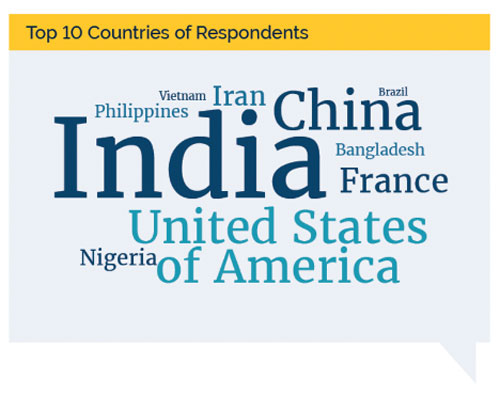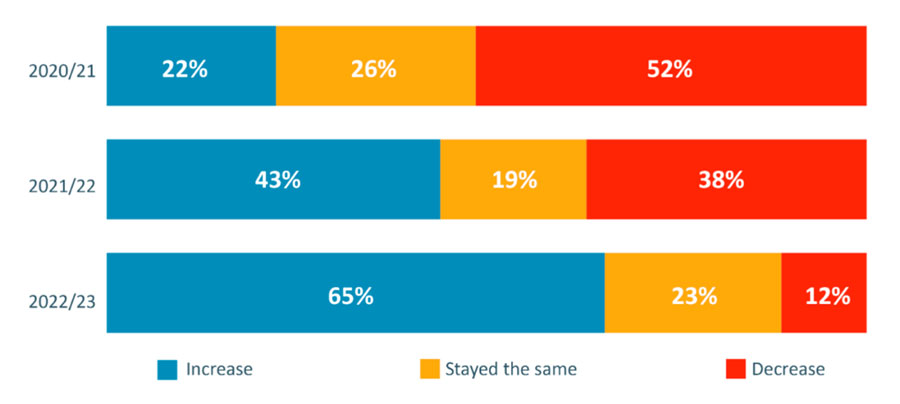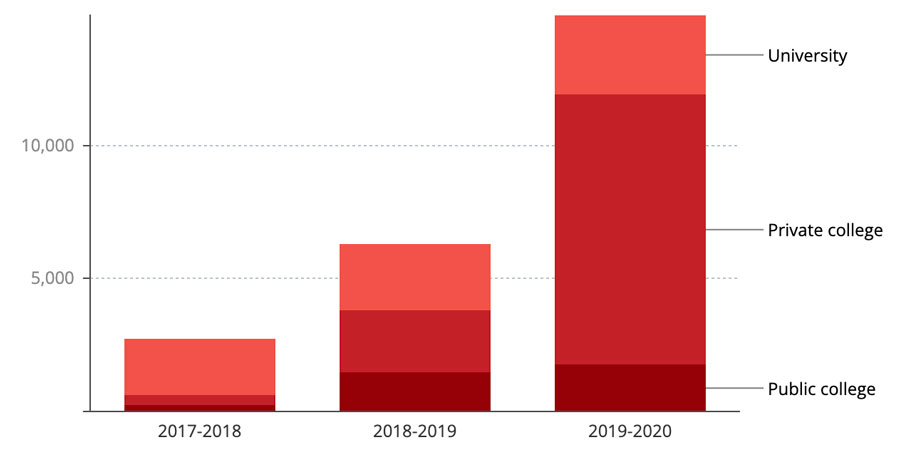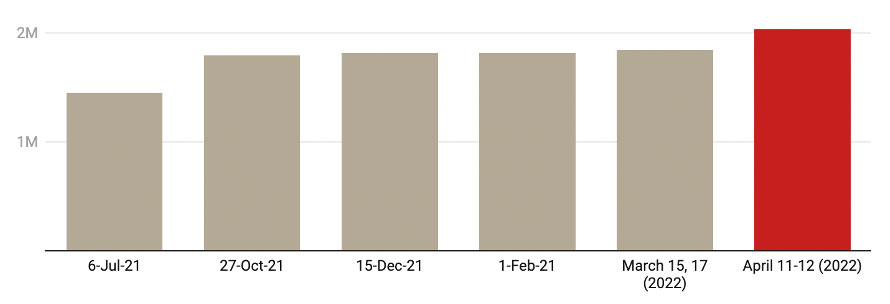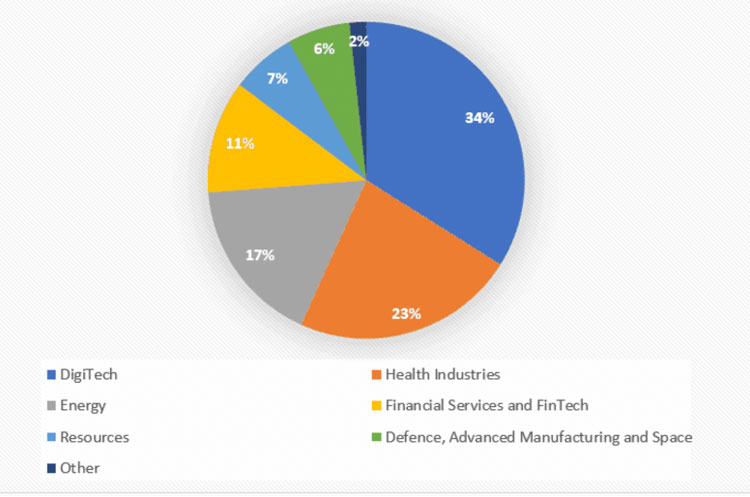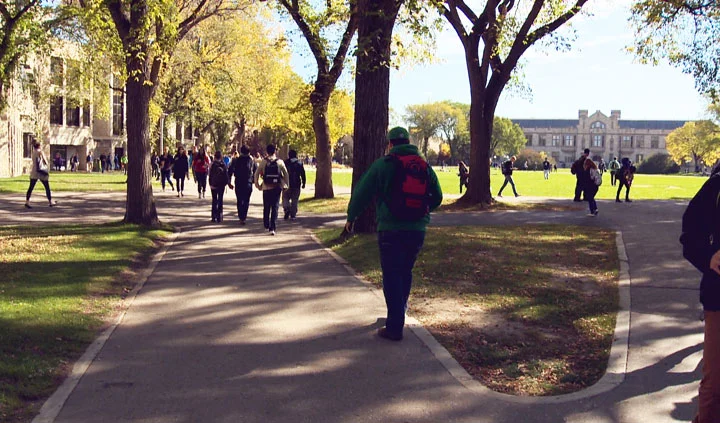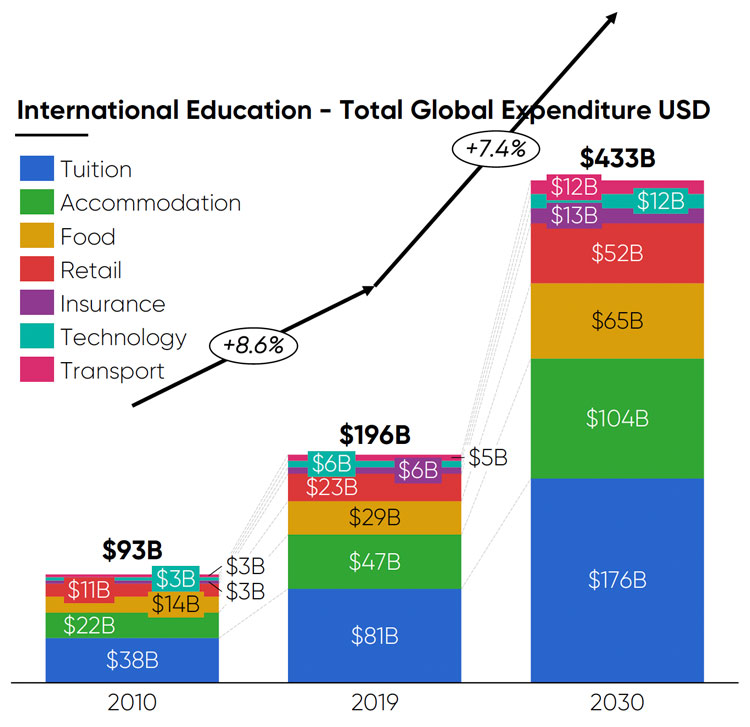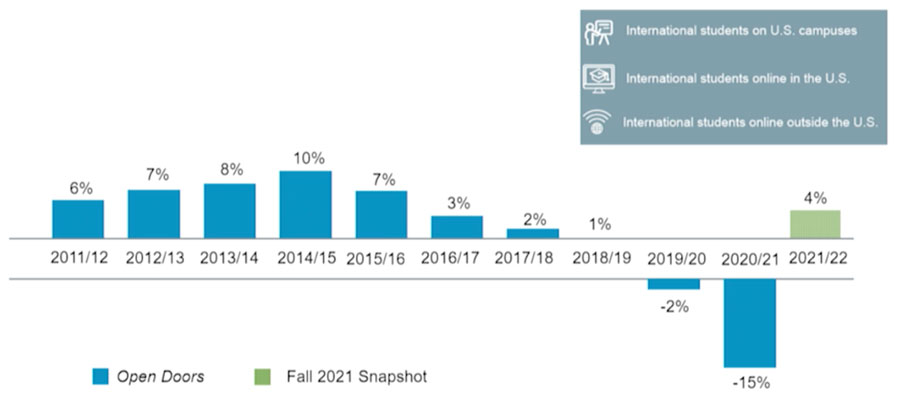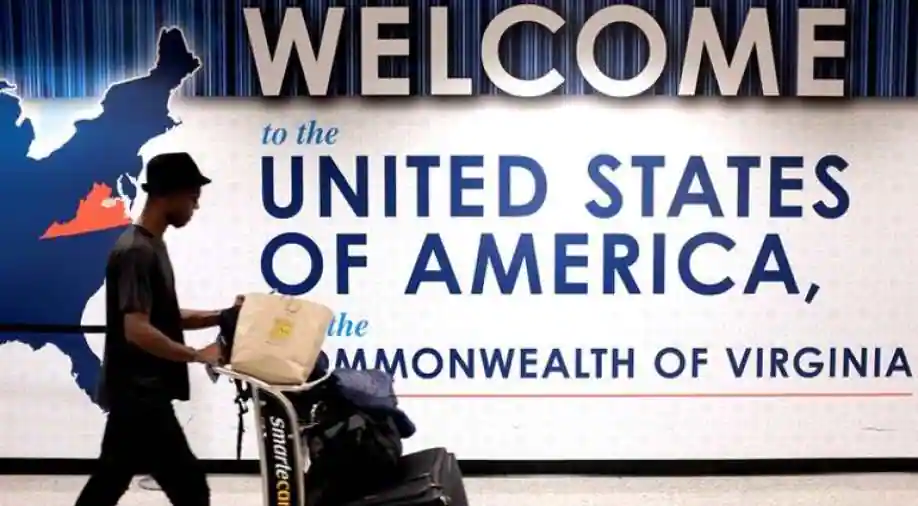The limit on the number of hours per week that international students can work off campus while classes are in session is temporarily being lifted by the Canadian government in order to solve the severe labor shortages that are affecting the country's economy.
International students are often only permitted to work 20 hours a week off-campus throughout the school year. However, from 15 November 2022 to 31 December 2023, international students who hold a work visa with an off-campus permission are no longer restricted to working 20 hours per week.
The new rule is applicable to both international students already studying in Canada as well as students who have applied for a study permit as of October 7, 2022. (provided, of course, that their application is approved).
The temporary lifting of the work cap is expected to have an impact on "more than 500,000 international students already in Canada who are potentially available to work additional hours," not to mention those who will enter the country on a valid study permit that was applied for before the deadline of October 7th.
It will be expected of students to balance academic work and off-campus employment. They won't be allowed to take fewer classes or switch to a part-time schedule. If they do, they will not be permitted to work off-campus.
Sean Fraser, Minister of Immigration, Refugees and Citizenship states:
“With the economy growing at a faster rate than employers can hire new workers, Canada needs to look at every option so that we have the skills and workforce needed to fuel our growth. Immigration will be crucial to addressing our labour shortage. By allowing international students to work more while they study, we can help ease pressing needs in many sectors across the country, while providing more opportunities for international students to gain valuable Canadian work experience and continue contributing to our short-term recovery and long-term prosperity.”
The possibility to work while studying is crucial for many international students this year due to the affordability problem in many nations, as we have recently talked about. In Canada, over half of post-secondary international students say they have a job while they are studying. Beginning in the middle of November, the work caps will be temporarily lifted, allowing them to make more money than previously.
International students who work on-campus in Canada are unaffected by the change because there are currently no restrictions on how many hours students can work on-campus during the academic year.
Make the change permanent, say some
Some supporters want the government to permanently eliminate the restrictions on off-campus work hours so that the program can be seen as addressing more than simply the limitations in the Canadian labor supply. In an open interview with CBC News in Canada, Alistair Kirk, a global spokesman for the Canadian Federation of Students Ontario, said:
“International students are more often than not seen as cash cows. I want the government to think about the livelihoods of international students — to know that the more unfair they treat us, the less likely we will stay to build Canada in the future.”
A new pilot program attempts to automate the extension of study permits
Additionally, a pilot effort to simplify the processing of study permit extensions for a select number of international students has been launched by Immigration, Refugees and Citizenship Canada (IRCC). Those types of applications, according to the department, are already accepted at a high rate, therefore it makes sense to try to automate this subset of applications to free up resources to handle "more difficult" applications. The pilot program will be expanded if it is successful.
Tens of thousands of study permit applications, both for new students who haven't yet arrived in Canada and for students who need extensions to stay legally in Canada, are backed up, and Canada's immigration officials are trying to process them. Many students are extremely frustrated because their study schedules and lives have been interfered with by unusually extended wait periods.
Source: ICEF














